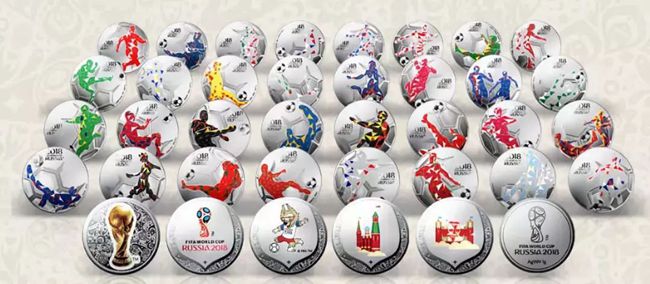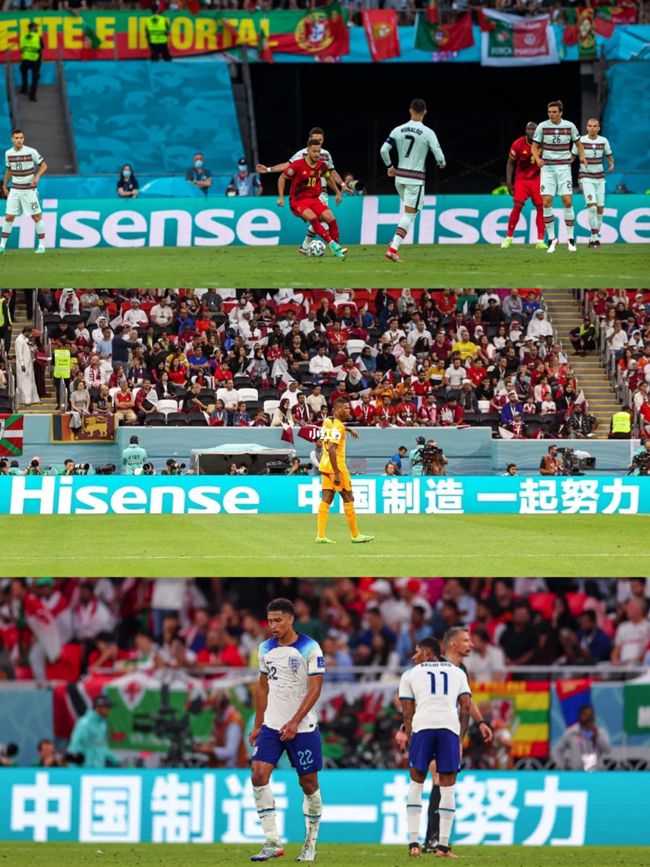At the Qatar World Cup, from the final stadium, water and power supply facilities, to the buses that officials, media and fans from various countries ride in, to the peripheral products for fans that can be seen everywhere in Qatar, the figure of made in China is everywhere. The Chinese Ambassador to Qatar, Zhou Jian, said that these Chinese elements are on the one hand a symbol of China's development, and on the other hand, they also show that Chinese manufacturing and Chinese construction are increasingly recognised and loved by people around the world.
Chinese infrastructure: a new city in the desert
This year's Qatar World Cup has cost over US$220 billion, five times more than the last seven World Cups combined. Where exactly is the money being spent? Investment in infrastructure accounts for a large part of it. In preparation for the World Cup, Qatar has built a city, the new city of Lusail, in the Lusail area, some 20 kilometres from the capital Doha.
Chinese companies have played an important role in building the new city in the desert. The Lusail Stadium, which hosted the semi-finals and finals of this year's World Cup and other important matches, is the core building of the new city of Lusail and was built by China Railway Construction as a general contractor for design and construction. "If we refer to the 2008 Beijing Olympics, the Brussels Stadium is the equivalent of the 'Bird's Nest' in Qatar." Li Bai, chief engineer of the Chinese side of the stadium, told this reporter.
How difficult is it to build Qatar's 'Bird's Nest'? The world's largest double-layered cross-roofed single building, with a span of 274 meters; the world's largest World Cup main stadium, which can accommodate 92,000 people at the same time, more than Beijing's "Bird's Nest "......

It's not easy to win the title of "the world's largest World Cup main stadium". "The stadium's capacity is not just about simply adding seats, but also about the height and slope of the stands so that all spectators can enjoy the best view of the game." Li Bai said that from the very beginning of the stadium's construction, he led his team to carry out simulations and calculations through modelling, and eventually submitted the most economical and practical solution to make the stadium's construction fully reflect "Chinese wisdom".
The first match at the Lucerne Stadium took place at 1pm local time, with temperatures reaching over 30 degrees Celsius. However, attentive spectators may have noticed that during the match, some spectators were even wearing long sleeves and trousers, and the athletes were not affected by the heat. How did this happen?
"The Lucerne Stadium is the equivalent of a giant 'air conditioner'." Li Bai explains that the Lucerne Stadium has three vents, located on the roof of the stadium, around the turf and at the bottom of the seats in the first tier stands, to guarantee that spectators in all areas can feel the cool air. The cooling station is located outside the stadium, which not only reduces the building's energy consumption, but also achieves a rational use of the limited building space.
In addition to the stadiums, Chinese companies are also deeply involved in the construction of Qatar's electricity and water supply infrastructure, contributing to the smooth running of the World Cup in Qatar.
Qatar's hot and dry climate posed a challenge to the water supply for the World Cup. In order to enhance the capacity of drinking water storage and supply, as well as to provide clean water for the World Cup, Qatar has implemented water supply projects, including desalination, storage and transmission systems.
The project was divided into five sections, with China Energy Construction Gezhouba Group constructing the E section of the project, which included two pools, a booster pumping station and bypass pipeline works. Among them, each pool is 305 meters long and 150 meters wide, with an area equivalent to 6.4 standard football fields and a capacity of 500,000 cubic meters, which is certified by Guinness World Records as "the world's largest single reservoir".
This is the most important water facility in Qatar and the largest cistern construction project in the world," said Calissa Lingam, Site Director of the Qatar Strategic Cistern Project. The part of the construction that Chinese companies are responsible for is fast and of good quality, and has successfully passed all the quality tests of the project without any problems so far."
Chinese buses: standing out from the multinational competition
During the World Cup in Qatar, Yutong's pure electric buses from China shuttled between the venues and hotels, taking on the task of transporting officials, journalists and fans from various countries. In Qatar, where water is more expensive than oil, Chinese electric buses have replaced fuel buses as the mainstay outside the tournament.
The Qatar World Cup organising committee attracted more than 20 companies from around the world to bid for the buses, including many European companies, each with its own "expertise". In the traditional perception of the Qatari side, European companies are expected to offer a higher standard of products than their Chinese counterparts. Why did the Chinese buses stand out from the rest?
"The Qatari government is currently promoting a strategy of green energy transition, and Yutong's new energy bus solution for the Qatar World Cup fits right in with that strategy." Wang Xuekang, deputy manager of Yutong Bus Qatar National Company, told the newspaper that during the bidding phase, Yutong Bus provided the client with detailed and complete technical requirements for new energy products, operational solutions, charging solutions, as well as a comprehensive service package and a plan to promote the full electrification of public transport in the future, which gradually turned the Qatari side's attention from foreign companies to Yutong.

The Qatari organising committee made up its mind to choose Yutong's purely electric buses after a trip to China by procurement staff. During the bidding period, the buyers visited the Yutong factory in Zhengzhou, Henan Province. "During the visit, the buyers were impressed by the scale and automation of the Yutong factory. The trip to China made them realise that Chinese-made electric buses are not inferior or even ahead of their European competitors." Wang Xuekang said.
Before and after winning the bid, Yutong's technical team flew to Qatar three times to collect road profiles from cities such as Doha, to gather targeted information on local road characteristics and deepen their understanding of the customer. During repeated road tests and validation, the technical team found that the test vehicles were more or less "unsuited" to the local conditions.
It turned out that the hot and dry climate of Qatar not only compromised the performance of the batteries in the previous pure electric buses, but also increased the risk of spontaneous combustion due to overheating. For this reason, Yutong has developed liquid-cooled battery technology for vehicles. "This is equivalent to providing a 'coolant' to the battery." Wang Xuekang said, "The battery temperature can be controlled within the ideal range during vehicle operation and charging, ensuring that the maximum battery temperature does not exceed 45 degrees Celsius during the entire vehicle journey. It improves the vehicle range and ensures the safety of vehicle driving."
In response to the windy and sandy weather conditions, Yutong has also made improvements in the sealing and chassis protection of the entire vehicle. The motors of this batch of pure electric vehicles are equipped with self-developed mud and sand protection structures, with additional protection against wind and sand and impact on key parts to enhance the adaptability of the motors to potholes, gravel and other road surfaces.
"Low noise and upscale," was the comment given by fans who have travelled on the Chinese buses. "After the World Cup, all Yutong buses will be an important part of Qatar's public transport and will continue to serve the country's public transport network." Wang Xuekang said.
Chinese goods: the "stars" off the field of play
On the pitch, the athletes are the focus of the fans' attention, but off the pitch, Chinese commodities are the "stars" that catch the eye. Football, jerseys, trophies, whistles, trumpets, star cards ...... during the World Cup, "Yiwu made" almost all the peripheral goods sold in Qatar. According to estimates from the Yiwu Sports Goods Association, Yiwu manufacturing accounts for about 70% of the market share of the entire World Cup peripheral goods. Some foreign media said that every fan who came to Qatar to watch the game, almost all will take a "Made in China" home.
Ltd. mainly produces World Cup commemorative trophies, pendants and other peripheral products. The person in charge of Ye Demo told reporters that as early as April this year, the company received the World Cup orders. Although it has been the 4th time to do the business of the World Cup, but in order to retain old customers and attract new customers, Ye Demo still put in a lot of effort.
"After a survey, we found that Arab customers preferred a darker golden colour. So we made a new colour for the trophies we sell to the Arab region." Ye Demo told reporters, "After the customers received them, they were very complimentary about the products."

